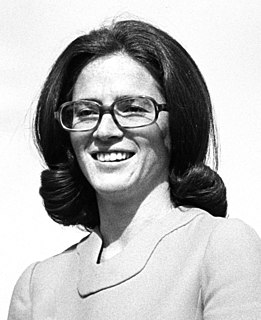A Quote by William O. Douglas
It is better, so the Fourth Amendment teaches us, that the guilty sometimes go free than the citizens be subject to easy arrest.
Related Quotes
For the Fourth Amendment protects people, not places. What a person knowingly exposes to the public, even in his own home or office, is not a subject of Fourth Amendment protection. But what he seeks to preserve as private, even in an area accessible to the public, may be constitutionally protected.
I know a whole generation has been raised on the notion of multiculturalism; that all civilizations are just different. No! Not always. Sometimes things are better! Rule of law is better than autocracy and theocracy; equality of the sexes, better; protection of minorities, better; free speech, better; free elections, better; free appliances with large purchases, better! Don't get so tolerant that you tolerate intolerance.
This [anti-terrorism bill] is a violation of the First Amendment right to free speech and the Fourth Amendment protection of private property... Some of these provisions place more power in the hands of law enforcement than our Founding Fathers could have dreamt and severely compromises the civil liberties of law-abiding Americans. This bill, while crafted with good intentions, is rife with constitutional infringements I could not support.
When they took the Fourth Amendment, I was silent because I don't deal drugs. When they took the Sixth Amendment, I kept quiet because I know I'm innocent. When they took the Second Amendment, I said nothing because I don't own a gun. Now they've come for the First Amendment, and I can't say anything at all.
The framers of our Constitution understood the dangers of unbridled government surveillance. They knew that democracy could flourish only in spaces free from government snooping and interference, and they put restraints on government overreaching in the Fourth Amendment of the Bill of Rights. . . . These protections require, at a minimum, a neutral arbiter - a magistrate - standing between the government's endless desire for information and the citizens' desires for privacy.
































